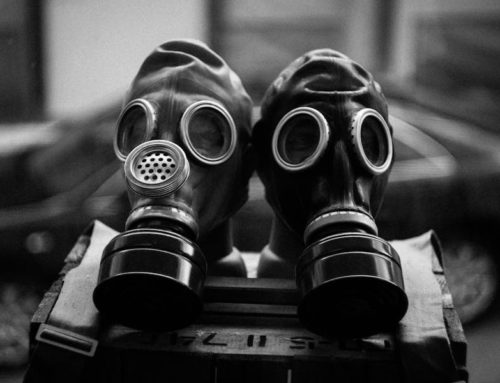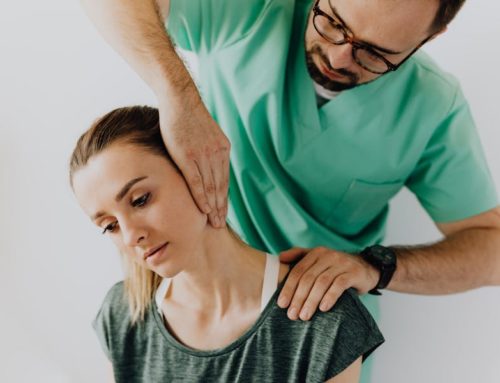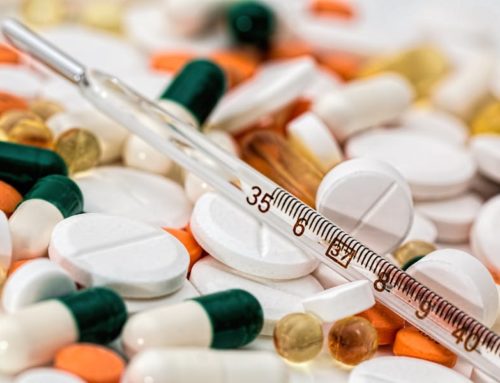Many people love camping and traveling, especially to places by water. However, traveling can suppress the immune system and expose people to unwanted elements, such as parasites.
As you know, parasites deprive the body of needed nutrition and, in many cases, cause chronic illnesses that can range from minor to life-threatening.
Parasites can affect anyone, anytime, and anywhere. Many people may have a parasitic infection and not even know it. You could get a blood or stool test done to detect some types of parasites, but these tests are not always accurate. (1, 2, 3)
In general, parasites live everywhere people eat, play, and sleep. They are in or on:
- Animals (whether cattle, wild, or a pet) (4)
- Bodies of water (lakes, streams, puddles, and rivers) (4)
- Soil (whether in the mountains or a lawn in the city) (5)
The parasites to really be aware of, whether at home or traveling, are aquatic parasites.
These omnipresent parasites can find their way into a host through a variety of avenues, but they typically end up in the body via contaminated food or water. The spectrum of parasitic infection varies widely from mild illness to death if left untreated. (6)
Here are the top three waterborne parasites that can do serious damage to the intestinal tract.
These microscopic protozoan parasites are able to multiply in humans and create serious health issues for the host: (7, 8, 9)
- Cryptosporidium parvum: Causes watery diarrhea and other digestive upset
- Cyclospora cayetanensis: Can result in explosive bowel movements and diarrhea
- Giardia lamblia: Causes diarrhea, greasy stools that float, and upset stomach
If you feel like they have ongoing issues with any of these symptoms, and have been in or drank contaminated water, they could have one or more of these parasites.
Of course, if you have a pulse, you have parasites. Parasite cleansing can be beneficial for most everyone. Many issues can also be avoided and eradicated with the appropriate detox treatment.
It’s important to understand these waterborne parasites and their symptoms, so you can start a detox protocol right away.
1. Cryptosporidium
Cryptosporidium is a microscopic parasite that causes diarrheal disease, known as cryptosporidiosis. Both the parasite and the disease are commonly known as “Crypto.” (10)
Cryptosporidium is a leading cause of waterborne disease among humans in the United States. This parasite, which can infect both animals and humans, is protected by an outer shell that allows it to survive outside the body for long periods and makes it very tolerant to chlorine disinfection. (10, 11)
Cryptosporidiosis is an illness caused by tiny, one-celled cryptosporidium parasites. When cryptosporidium enters the body, they travel to the small intestine and burrow into the intestinal walls. Then cryptosporidium are shed in feces (12, 13, 14)
While cryptosporidium spreads in several different ways, water (drinking water and recreational water) is the most common. (10, 12)
Some people who become infected with cryptosporidium end up symptom-free, but those infected can still pass on the infection to others. Usually, infection with cryptosporidium causes a gastroenteritis-type illness, an infection of the bowels. It can take between 3 to 12 days after contact with cryptosporidium before someone develops symptoms. (15, 16)
If you have a cryptosporidium infection, best-case scenario it means about a week or two of watery diarrhea that eventually goes away. However, If their immune system is already compromised, or if they have any autoimmune deficiency, cryptosporidiosis means a potentially life-threatening situation if left unaddressed. (13)
As with many other types of infections, those whose immune systems that are compromised explicitly by HIV/AIDS are at critical risk of this type of infection. (15, 17)
It’s also important for you to be careful about access to water in public places. This especially includes: (18)
- Natural water sources like lakes
- Swimming pools
- Water parks
Being more cautious around water will significantly decrease the risk of a cryptosporidium infection.
People have to be aware around public pools and water parks because cryptosporidium is resistant to common chlorine-based disinfectants. Additionally, the parasite is hearty and can survive for months at average temperatures and live for months without a host. (19)
It can be destroyed by boiling or freezing, however. (16, 20)
Some studies indicate that the secondary results of a cryptosporidium infection may exacerbate the effects of other bowel related diseases like:
These studies are ongoing but are an indication of the ability of crypto to further weaken if immunodeficiency already affects their immune systems. (23)
2. Cyclospora
When produce is served but not properly handled, it could lead to a cyclospora outbreak. In a case from July 2018 in the United States, dozens of individuals were affected by cyclospora infection that was linked to a McDonald’s salad. This particular case resulted in salads being pulled off shelves in restaurants across fourteen states in the U.S. (24)
Cyclosporiasis is an intestinal illness caused by the microscopic parasite. People can become infected with cyclospora by consuming food or water contaminated with infected feces. (25)
Cyclospora causes watery or explosive diarrhea. Sometimes, people infected don’t show any signs or symptoms. For others, symptoms show within 2-11 days after eating contaminated food or drinking contaminated water. (26, 27)
If you are immunocompromised, they fare far worse as the infection can last for months if untreated. (26)
If you are living or traveling in countries where cyclosporiasis is endemic, they are even more at risk for infection. It’s important that caution is taken because regular sanitizing methods and routine chemical disinfection of food and water may not be effective. (28, 29)
While it occurs in many countries, cyclosporiasis seems to be most common in tropical and subtropical regions. In areas where cyclosporiasis has been studied, the risk for infection is seasonal. However, no consistent pattern has been identified regarding the time of year or environmental conditions, such as temperature or rainfall. (28)
In the United States, foodborne outbreaks of cyclosporiasis have been linked to various types of imported fresh produce like: (29)
- Basil
- Cilantro
- Raspberries
- Snow peas
- Young salad greens
So far canned and frozen foods seem to be safe from cyclospora. (29)
An infected person sheds unsporulated (non-infective) Cyclospora oocysts in the feces. Cyclospora doesn’t become infectious until days or weeks after it’s passed in a bowel movement from an infected individual. (26, 29)
3. Giardia
There’s a reason why mountain lakes and streams are not drinkable water. That cool, refreshing water in that little stream doesn’t contain just water. It probably is swarming with giardia. (30)
Giardia is a microscopic parasite that, like cryptosporidium, gives people the diarrheal illness known as giardiasis. It’s the most common waterborne parasitic infection of the human intestine worldwide. The risk is greatest in rural and wilderness areas. (31, 32, 33)
There can be long-term consequences of a giardia infection. Even after someone is cleared of giardiasis, it can induce growth and cognitive deficiencies, as well as chronic fatigue syndrome and IBS. (32, 34)
This terrible infection goes by other names like: (35)
- Giardia duodenalis
- Giardia intestinalis
- Giardia lamblia
This parasite is found on surfaces in homes or in the soil. It lives on food, or in water that has been contaminated with feces from infected animals or humans. (31)
Like cryptosporidium, giardia is protected by an outer shell that allows it to survive outside a host body for long periods of time. Unfortunately, this also makes it tolerant to chlorine disinfection. So while chlorine is used in public pools to keep the water clean, it can still survive in these areas. (36)
Although parasites can be spread in different ways, water (drinking water and recreational water) is the most common mode of transmission. Children are at much higher risk for giardia infection than adults and have higher infection rates. (31, 37)
Studies have shown that this parasite also alters the gut microbiome, suggesting a possible explanation for why giardia has been reported to be associated with protection from moderate to severe diarrhea. This also may contribute to a number of acute, chronic, and post-infections of giardiasis. (38, 39)
How to Help Detox Waterborne Parasites
U.S. cases of infection also have occurred in persons who traveled to cyclospora-endemic areas. To reduce your risk for an infection while abroad, have them take precautions, such as:
- Choosing foods that are less likely to cause infection and have been adequately cleaned before consumption and other similar precautions (40, 41)
- Consuming only treated/purified water (42)
- Taking herbs that get the bowels moving so the parasites can be flushed out
- Taking parasite-killing herbs to create a hostile environment for them in the body
- Using essential oils that help kill parasites (43, 44)







